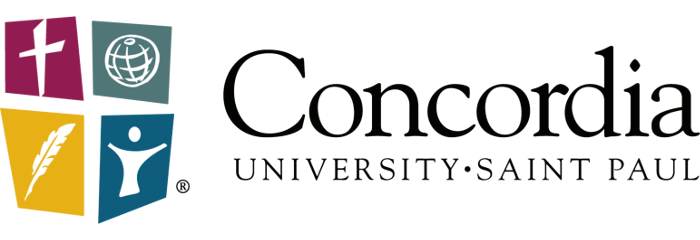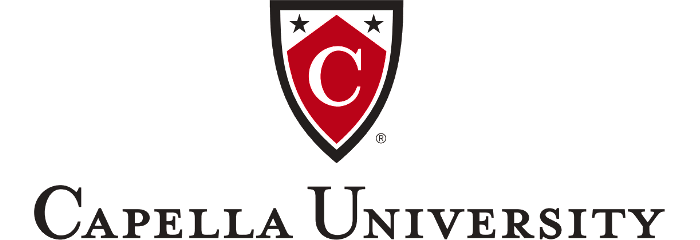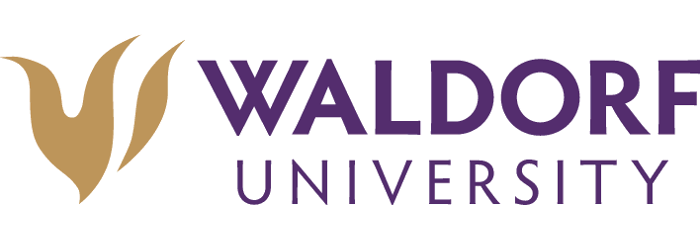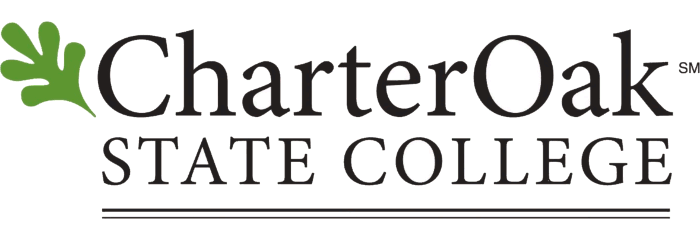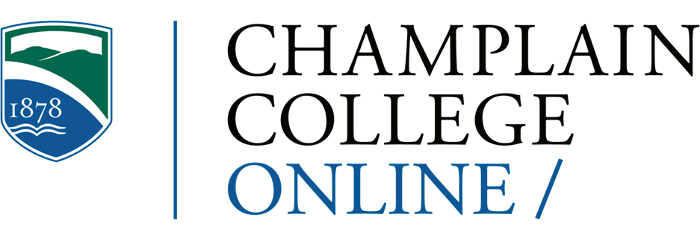2023 Best Online Healthcare Administration Programs
An online bachelor's degree in healthcare administration introduces students to the science of managing complex, modern healthcare delivery systems. Coursework is designed to teach students how organizations — such as hospitals, clinics, and nursing homes — run smoothly to meet patient needs effectively. Graduates are likely to take on entry-level roles within healthcare organizations; however, a master's degree in healthcare administration may be required to advance into leadership positions.
While healthcare administration is focused on the micro-operations of a facility — such as staffing and budgeting — healthcare management takes a more macro approach to create policies for the organization as a whole. Students may also explore similar degree options, such as medical office administration.
View our methodology for more details about our list or learn more about OnlineU.
Learn more about how we make money. ">ADVERTISEMENT
Online Healthcare Administration Bachelor's Degrees You May Be Interested In

Arizona State University
Annual Tuition: $19,398 - $29,428
4 Programs (view all)

Southern New Hampshire University Online
Annual Tuition: $9,600
2 Programs (view all)
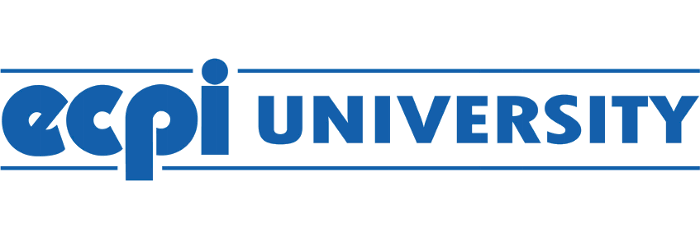
ECPI University Online
2023 Best Online Healthcare Administration Programs
| Rank | School | Salary Score | Median Starting Salary |
|---|---|---|---|
| Concordia University - Saint Paul | $53,999 | ||
| Capella University | 95 | $52,610 | |
| Waldorf University | 95 | $52,459 | |
| Charter Oak State College | 95 | $52,192 | |
| Champlain College | 91 | $50,262 | |
| Colorado State University Global | 86 | $48,123 | |
| Washburn University | 82 | $46,968 | |
| National University | 82 | $46,892 | |
| Columbia Southern University | 80 | $46,392 | |
| Southern New Hampshire University Online | 78 | $45,661 |
2023 Online Colleges Offering Bachelor's Degrees
Ranking Details
#1 Concordia University - Saint Paul
- Salary Score: 97
- Median Starting Salary: $53,999
- Locations: Saint Paul (MN)
- Accreditation: HLC
Concordia University - Saint Paul (CSP) is a private religious university offering an online Bachelor of Arts in Health Care Administration that requires 120 credit hours, which can be completed in as little as two years with up to 90 transferable credits. Full-time students with no existing credits are likely to graduate in four years. The acceptance rate at CSP is 69%, with 62% of students achieving their degrees.
At CSP, students use Blackboard for their remote courses, which they can complete entirely online and asynchronously (i.e., at their own pace). This learning management system (LMS) allows students to listen to lectures and complete coursework virtually. The healthcare administration program looks at the wider issues of the healthcare industry while teaching the crucial leadership skills needed to obtain a fulfilling career. Required classes include Leadership Communication, Health Care Finance, and Health Care Information Systems. Graduates may explore roles in hospitals, doctor's offices, and other clinical practices.
#2 Capella University
- Salary Score: 95
- Median Starting Salary: $52,610
- Locations: Minneapolis (MN)
- Accreditation: HLC
Capella University is a private institution with an online Bachelor of Science in Health Care Administration Leadership requiring 180 total credits. Capella also offers an online Bachelor of Science in Health Care Administration - Health Information Management, which includes a stronger emphasis on data management. Full-time students generally complete one of these programs in around four years. Capella accepts 100% of its applicants, while only 16% of students end up graduating.
Capella uses the Blackboard LMS for their online coursework. This software allows students to finish their degrees completely online and on a schedule that meets their needs. They offer a guided track with more structure and a flexible path where students can set their own deadlines. The core curriculum encompasses various aspects of the industry, including marketing, economics, research, and wellness, alongside teaching students crucial leadership skills. Required classes include Strategic Leadership and Workforce Planning in Health Care, Managing Population Health, and Present and Future State Developments within the United States Health Care System. Students are also required to complete one capstone project. Career options include practice manager, health administrator, and business analyst.
#3 Waldorf University
- Salary Score: 95
- Median Starting Salary: $52,459
- Locations: Forest City (IA)
- Accreditation: HLC
Waldorf University is a private university with an online Bachelor of Applied Science in Business Administration - Health Care Management. This degree requires 120 credit hours, which full-time students can complete in four years. Approximately 61% of applicants are accepted into Waldorf, with 50% of students finishing with degrees.
Waldorf students use Blackboard as their primary LMS, where they can complete courses online and asynchronously. The core of this program focuses on developing strong business skills through accounting, management, and marketing, while the concentration explores the healthcare industry through a business lens. Among the required classes are Medical Terminology, Introduction to Health Care Management, and Health Care Law. Career opportunities may be available in entry-level positions in healthcare facilities.
#4 Charter Oak State College
- Salary Score: 95
- Median Starting Salary: $52,192
- Locations: New Britain (CT)
- Accreditation: NECHE
Charter Oak State College is a public university that offers a Bachelor of Science in Health Care Administration. This degree requires 120 credit hours, which is generally completed in four years while studying full time. They also offer a Health Information Management Bachelor's Degree, which may allow students to work in similar facilities. Charter Oak accepts all applicants, while 57% of its undergraduate students earn degrees.
Blackboard is the main digital learning platform used by Charter Oak students for their degree program, which can be completed 100% online and in an asynchronous format. This degree is all about developing the professional skills needed for students to develop and implement healthcare services and programs effectively. Approximately 42 of the required credits are devoted to the core curriculum, including classes such as Health Care Systems and Administration, Economics of Health and Health Care, and Health Care Quality Concepts and Principles. Additional credits are required for the capstone project. Jobs for graduates may include human resources managers, administrative service managers, and medical and health service managers.
#5 Champlain College
- Salary Score: 91
- Median Starting Salary: $50,262
- Locations: Burlington (VT)
- Accreditation: NECHE
Champlain College is a private institution with a Bachelor of Science in Healthcare Administration requiring the completion of 120 credit hours. Typically, students graduate within four years while studying full time. Champlain accepts 85% of applicants, with 64% of students reaching graduation.
All online courses at Champlain are delivered through the Canvas LMS, which allows students to study fully online in an asynchronous format. This degree focuses on developing technical, communication, and leadership skills along with an understanding of the complex healthcare industry. Among the major requirements are Navigating the U.S. Healthcare System, Catalyzing Positive Organizational Behavior, and Info Systems in Healthcare Organization. Additionally, students must complete an integrative capstone project. Upon graduation, students are often prepared to become administrative medical assistants, healthcare financial consultants, and hospital administrators.
Overview of an Online Bachelor's in Healthcare Administration Degrees
Healthcare administration bachelor's programs can prepare students to perform common managerial functions in the healthcare industry, including planning, organizing, monitoring, and staffing. Students who plan to go into management in this field need specialized knowledge of healthcare facilities, services, technologies, finances, and employees.
Students who plan to go into management in this field need specialized knowledge of healthcare facilities, services, technologies, finances, and employees.
Many healthcare administration programs are available online, making it more convenient for some students to earn a degree. Much like on-campus degrees, online programs require 120-124 credits and take four years of full-time study to complete. Some may focus on specific aspects of management, such as operations, HR, or IT, so prospective students may want to examine the curricula for different programs before selecting one.
Admission Requirements
Online programs in healthcare administration have the same admission requirements as on-campus programs. Specific requirements can vary by school, but students typically need a high school diploma or equivalent, a minimum 2.5 GPA, and an application form. Additionally, they may have to submit the following materials along with their application:
- Official high school transcripts
- Previous college transcripts for transfer students
- ACT or SAT scores
- Letters of recommendation from teachers, mentors, or supervisors that describe the applicant's ability and character
- Personal essays describing the applicants interest in earning a healthcare administration bachelor's
- A list of extracurricular activities demonstrating the applicant's competencies and/or service to their community
For more details about this process, see our Guide to Applying to an Online College.
B.A. vs. B.S. in Healthcare Administration
The majority of online programs on our list lead to a Bachelor of Science (B.S.), which is designed to provide students with a fundamental understanding of healthcare management. Many courses focus on developing managerial and technical skills that help prepare graduates for positions in the healthcare industry, such as organizational management, data management, or IT management.
Some schools, however, offer an online Bachelor of Arts (B.A.) in healthcare administration. These programs incorporate courses from arts and humanities subjects, such as psychology, literature, and sociology. Much like a B.S. in Healthcare Administration, a B.A. in this field also prepares students for management positions. However, given its inclusion of more general education courses, a B.A. in Healthcare Administration may be better suited for students interested in keeping their career options open.
Common Courses in a Healthcare Administration Program
Students enroll in online healthcare administration programs to learn about the unique challenges, laws, and technologies they are likely to encounter in the workplace after graduation. While coursework may vary depending on the program, the following is a list of common core courses in a healthcare administration bachelor's degree:
Interested in learning about similar degrees? Explore online bachelor's degrees in healthcare informatics, public health, or healthcare management.
Accreditation
Accreditation is an important designation granted to schools that meet the national standards for educational excellence. The U.S. Department of Education and the Council for Higher Education Accreditation each offer a database of recognized schools, programs, and accrediting agencies.
The Accrediting Bureau of Health Education Schools is the primary body evaluating online bachelor's degrees in healthcare administration.
While schools may be accredited on an institutional basis, professional organizations can also assess specific degree programs in some cases to determine whether they meet educational standards in a given discipline. The Accrediting Bureau of Health Education Schools (ABHES) is the primary body evaluating online bachelor's degrees in healthcare administration. Programs accredited by ABHES have met industry standards for education that help prepare students for careers in the health services field.
Careers with a Healthcare Administration Degree
An aging population in the U.S. has increased the need for healthcare services. According to the Bureau of Labor Statistics (BLS), healthcare professions are projected to grow by 16% over the next decade — significantly faster than the 8% average across all occupations. A healthcare administration degree program may prepare students for entry-level management positions in this growing field, with graduates potentially going on to work in areas such as human resources, finance, and general management. Below is a list of career opportunities for healthcare administration graduates, along with salary and job outlook data from the BLS:
Will Earning My Master's Degree Advance My Career?
After earning a bachelor's in healthcare administration, the value of continuing a healthcare administration education at the graduate level depends on a student's career goals. Although some well-paying positions are available to bachelor's degree holders, those who aspire to the highest-paying positions in the healthcare industry will most likely need an advanced degree. For example, hospital chief executive officers — who are very well compensated — may require the in-depth knowledge of operations management, finance, marketing, and human resources provided by a master's in healthcare administration.
Is an Online Healthcare Administration Degree Worth It?
Deciding whether to pursue an online degree in healthcare administration requires carefully considering a number of factors. In addition to their career goals, students thinking about earning a graduate degree in this field should also evaluate their personal circumstances, time commitments, and finances. Prospective students may also want to weigh some of the overall pros and cons:
Potential Benefits
A degree in healthcare administration can lead to many job opportunities at relatively high wages. As mentioned above, healthcare professions are likely to be in high demand through 2030, according to the BLS, and a degree in this field can ensure students remain competitive in a growing sector.
This is a versatile degree. Earning a bachelor's in healthcare administration helps students develop valuable skills, such as critical thinking, problem-solving, analysis, and communication, and gain an in-depth knowledge of management, accounting, and human resources. These skills can be applied to many different occupations within the healthcare industry and beyond.
Online programs are often more flexible and convenient. By opting for a distanced learning program in healthcare administration, students can select from a broader pool of offerings and choose the program that best fits their career goals and financial needs without having to move to a different location.
Potential Drawbacks
Healthcare administrators may work unusual hours. The BLS states that medical and health services managers don't always work a typical 40-hour work week. Some professionals may have to work evenings and weekends, and some are required to be on call in case of an emergency.
Online programs can be socially isolating. Some students have reported feeling distanced from classmates and instructors in the online environment. Virtual learners may have to devote more time and effort to building relationships and establishing networks through discussion forums.
Frequently Asked Questions
Why Trust Us?
27 Data Researchers
60,000 Degrees Researched Annually
20,000 Hours Spent on Research Annually
Launching Rankings Since 2009
Related Articles
2023 Best Online Public Administration Degrees
Read about the best schools offering online public administration bachelor's degrees based on salary score.
By OnlineU Staff Writers | 12/29/2022

